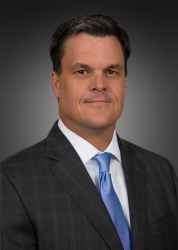What is APEx certification?
A/V Provider of Excellence, or APEx, certification is a newer certification program available through the Audiovisual and Integrated Experience Association, or AVIXA. AVIXA is a powerful organization that is seen by most A/V professionals as the most influential in the industry. APEx is one of its newest initiatives, and it allows talented, client-focused A/V integrators to stand out from the crowd. Attaining APEx certification isn’t easy, but it is worth it for integrators that take their reputation seriously. With APEx certification, an integrator has proven its expertise and ethics to AVIXA.How does an integrator achieve APEx certification?
APEx is best thought of as a marketing program that recognizes the hardest, smartest workers in the A/V integration industry. Integrators have to meet several standards to achieve APEx certifications, though they do vary depending on the size of the company. AVIXA recognizes that smaller integrators don’t operate like large integrators do, but both can achieve APEx certification if they are driven and professional enough to do so. For those on the client side, APEx certification should be seen as verification that a particular integrator is using industry-best methods and customer service in its projects. What, though, does an integrator need to do to achieve APEx certification? It’s a point-based system, so integrators have some flexibility in how they make the grade. In short, an integrator must pick up at least 100 points every year to maintain APEx certification. What do they have to do to earn those points?1. Recognize and meet AVIXA standards (worth 40 points) – AVIXA is a training organization, first and foremost. Unsurprisingly, then, the first hurdle that integrators must clear is adhering to AVIXA’s considerable work standards. Specifically, integrators must meet or exceed AVIXA standards outlines in its 2M-2010 and 10:2013 requirements. These standards address a huge breadth of practices for integrators, including the fundamentals of system design and installation, as well as the organization needed to execute both properly. AVIXA standards also address the proper documentation of an A/V project, including documentation that relates to project engineering and architecture. Finally, these AVIXA standards offer a framework for determining what parts of an A/V project need to be verified, as well as how to time that verification during a project delivery cycle. In all, that includes 160 items that require verification.
These standards alone address much of what an integrator must do while on site. To attain APEx certification, though, they are only the start.
2. Employees must have AVIXA certifications (worth 30 points) – At a medium size integrator (between 25 and 99 employees), at least 25 percent of the company’s employees must have CTS, CTS-D or CTS-I certification. These certification programs are offered through AVIXA and are the foundation of their training. Once a professional has completed CTS training, they should understand the fundamentals of system design and installation, such as mounting equipment or terminating cable. Employees can further specialize in system design with AVIXA’s CTS-D training, or installation in AVIXA’s CTS-I training.
CTS training is critical for basic understanding of the integrator’s job, so an integrator will struggle if its people do not have the training that comes with CTS certification.
3. Positive customer response surveys (worth 10 points) – Sticking with a medium size integrator for our examples, the company must acquire at least four positive customer surveys every year. These surveys are not conducted by the integrator or AVIXA. Instead, AVIXA uses a third party to analyze and score the surveys. The only notification that AVIXA receives from their third party is whether the survey was positive or negative. This means that integrators can’t manipulate surveys. They have to earn the positive marks.
4. Core values agreement (worth five points) – AVIXA’s core values agreement is a 10-item list of qualities that an integrator must embody. They include things like providing comprehensive solutions, offering best value to clients, maintaining an expert technical staff, offering training support to clients and providing scalable solutions to clients. In short, AVIXA requires integrators to offer industry best practices to their clients.
That only adds up to 85 points, so how can integrators make up the rest? AVIXA gives integrators a few options in tallying up a higher score, including:1. Additional staff with CTS certification – Integrators can rack up a higher score by employing more people with CTS certification. For every additional employee with CTS certification, an integrator earns an additional two points, and an extra three points for every employee with CTS-D or CTS-I certification (up to 15). More CTS-certified employees means an integrator can take on more projects and more complex projects, as it has additional expertise to draw from.
2. AVIXA training – Integrators can also score points by taking and completing AVIXA courses. AVIXA has a comprehensive course catalogue for A/V professionals, including A/V math, design environment and infrastructure, networking technology and project management, among many other courses. For every AVIXA course taken, an integrator earns an additional point for their total (up to 15).
3. Other APEx approved certifications – AVIXA isn’t the only industry organization offering certification tracks. Cisco, CEDIA, ISA, SCTE, CompTIA, AQAV, SIA, Crestron, Extron, Harman and the National Society of Professional Engineers, among others, are companies and organizations that provide training for certification purposes. AVIXA recognizes these certifications for the purposes of achieving APEx recognition. For every approved certification that an integrator attains, it also earns a point (up to 15).
Add it all up, and if an integrator has scored at least 100 points, it can become APEx recognized if it is an AVIXA member. By the time an integrator gets that far, though, it has proven that it is a reputable, knowledgeable member of the A/V integration industry. Those are the kind of integrators that organizations and companies should target when they require an effective, reliable A/V solution.


